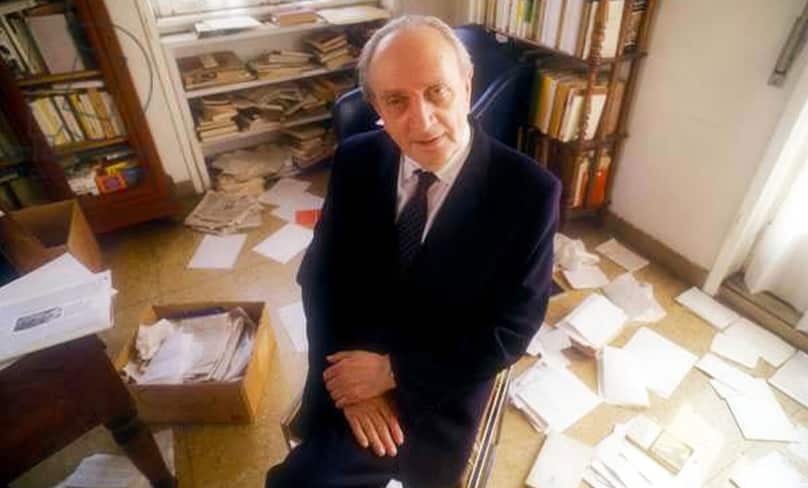
Understanding causes of the problem leads to knowing how to overcome it and find true meaning
There’s no doubt society, for all its benefits and strengths, is suffering an existential crisis where too many Australians go about their lives anxious, depressed and lacking confidence and optimism about the future.
Whether measured by high rates of mental illness, youth self-harm and suicide, drug and alcohol abuse or the number of single parent families, the reality is for all its attractiveness a Western society like Australia appears dysfunctional and without purpose.
Add the all-pervasive impact of neo-Marxist inspired cancel-culture, where victimhood and identity politics teach young people Western societies are riven with structural sexism, racism, classism and homophobia, it should not surprise in the words of the famous poem by WB Yeats, The Second Coming, we now live in a time when:
Things fall apart; the centre cannot hold;
Mere anarchy is loosed upon the world,
The blood-dimmed tide is loosed, and everywhere
The ceremony of innocence is drowned;
The best lack all conviction, while the worst
Are full of passionate intensity.
As argued by the Italian philosopher and cultural critic Augusto Del Noce in The Crisis of Modernity, in addition to the debilitating effect of cultural-left ideology, Western societies are also suffering from scientism.
“The advent of digital technology, including mobile phones, computers, laptops and the internet, atomises relationships, radically alters cognitive development in young minds and has led to an epidemic of pornography, sexting and cyber-bullying, corrupting the minds and morals of millions.”
Del Noce describes scientism as a totalitarian form of technology and science, one where:
“Science is regarded as the ‘only’ true form of knowledge” and “every other type of knowledge – metaphysical or religious – expresses only ‘subjective reactions’, which we are able, or will be able, to explain by extending science to the human sphere”.
Such is the destructive and debilitating effect of scientism we now live in a society like Huxley’s Brave New World where embryos are used in stem cell research, late term abortions are sanctioned, puberty blockers and life changing surgery subvert the God given nature of sexuality and doctors are involved in state sanctioned suicide.
The advent of digital technology, including mobile phones, computers, laptops and the internet, atomises relationships, radically alters cognitive development in young minds and has led to an epidemic of pornography, sexting and cyber-bullying, corrupting the minds and morals of millions.
Scientism breeds the conceit that humans have the power to control life and the natural world, that there is no higher moral, ethical or transcendent order that must be acknowledged and respected. Scientism also belittles and derides religion as superstition and witchcraft.
Along with the destructive effect of scientism, Del Noce identifies a totalitarian form of secularisation; one that denies the spiritual and transcendent by promoting a view of the world and human nature devoid of religion.

Tracing its origins to communism, Del Noce writes “Marx wants to achieve the complete rejection of any dependence of man on God, and so, in the first place, of dependence on God the Creator”.
What’s to be done? At a time of widespread ennui and loss of purpose it’s vital to reassert the central importance of a spiritual and more enriching sense of life drawing on Christianity and the word of God.
That God sent his only Son to redeem mankind and offer forgiveness and salvation provides succour and meaning to an otherwise sterile and barren existence.
God’s love and grace also tells us, despite life’s inevitable suffering and pain, that there is a higher purpose.
As suggested by Saint Teresa of Avila “Let nothing disturb you, Let nothing frighten you, All things are passing away: God never changes. Patience obtains all things. Whoever has God lacks nothing; God alone suffices”.
“The most beautiful experience we can have is the mysterious. It is a fundamental emotion which stands at the cradle of true art and true science. Whoever does not know it and can no longer wonder, no longer marvel, is as good as dead, and his eyes are dimmed.”
The Bible also teaches that while we are easily tempted, with God’s love it is possible to find redemption.
As argued by Julian of Norwich, “If any such lover be in earth which is continually kept from falling, I know not: for it was not shewed me. But this was shewed: that in falling and in rising we are preciously kept in one love”.
As well as reasserting the central importance of Christianity, it is also important to acknowledge scientism represents a distorted and superficial view of what constitutes science. In his autobiography Albert Einstein writes:
“The most beautiful experience we can have is the mysterious. It is a fundamental emotion which stands at the cradle of true art and true science. Whoever does not know it and can no longer wonder, no longer marvel, is as good as dead, and his eyes are dimmed”.
It is also true that science and faith complement one another. In Fides et Ratio Saint John Paul II writes, “Faith and reason are like two wings on which the human spirit rises to the contemplation of truth; and God has placed in the human heart a desire to know the truth”.
Despite the darkness, there is also light and in turning to the light we find meaning and reassurance in what is an otherwise gloomy and despondent world.
